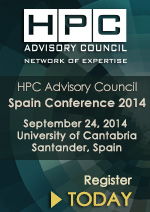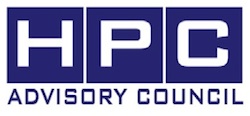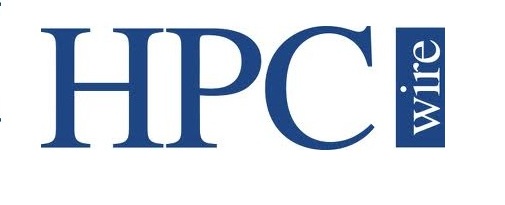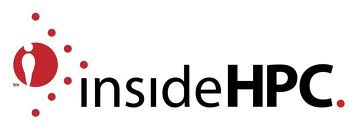
The Spanish Supercomputing Network (RES), coordinated by the Barcelona Supercomputing Center (BSC), and the High Performace Computing Advisory Council, will held the 8th RES Users' Conference and the 3rd Annual HPC Advisory Council Spain Conference on 23rd and 24th September 2014 in Santander (Spain). The events will be co-organised in cooperation with the Institute of Physics of Cantabria (IFCA) and the University of Cantabria (UC).
The 8th RES Users'Conference will inform on the available resources and services, how to request access to the RES and PRACE resources as well as explain the review procedure of the applications. Moreover will the results obtained using the RES supercomputing facilities will be disseminated and a discussion forum between the users, the CURES and the RES coordination will be offered.
The 3rd HPC Advisory Council Spain Conference will focus on the following subjects: high-performance computing systems, high-speed networks, high-performance and parallel I/O, communication libraries: MPI, SHMEM, PGAS, advanced topics, technologies, development, the road to Exascale, GPU computing, CUDA, OpenCL and new HPC initiatives and programs.


Recommended Accomodation:
Find here a list of recommended accomodation in the surroundings of the meeting place.
ORGANIZING INSTITUTIONS
About the HPC Advisory Council (HPC AC)
The HPC Advisory Council’s mission is to bridge the gap between high-performance computing (HPC) use and its potential, bring the beneficial capabilities of HPC to new users for better research, education, innovation and product manufacturing, bring users the expertise needed to operate HPC systems, provide application designers with the tools needed to enable parallel computing, and to strengthen the qualification and integration of HPC system products. For more information about the HPC Advisory Council, please visit www.hpcadvisorycouncil.com.
About the Spanish Supercomputing Network (RES)
The Spanish Supercomputing network (Red Española de Supercomputing - RES) is a distributed supercomputer structure, the aim of which is to meet the needs of research groups in Spain. Nodes on this network are located at the BSC-CNS in Barcelona, the Polytechnic University of Madrid (Madrid Supercomputing and Visualisation Centre), the Canary Islands Astrophysics Institute (IAC), the Canary Islands Institute of Technology (ITC) and the Universities of Cantabria, Malaga, Valencia and Saragossa. The RES’s technical management is coordinated by the BSC-CNS and answers the scientific community’s growing need for supercomputing.
About the Barcelona Supercomputing Center (BSC-CNS)
The Barcelona Supercomputing Center is the national supercomputing centre in Spain. The BSC-CNS specialises in high performance computing (HPC) and its mission is two-fold: to provide infrastructure and supercomputing services to European scientists, and to generate knowledge and technology to transfer to business and society.
It is a Severo Ochoa Center of Excellence and a first level member of the European research infrastructure PRACE (Partnership for Advanced Computing in Europe). The BSC-CNS also manages the Spanish Supercomputing Network (RES). More information at www.bsc.es.
About the Institute of Physics of Cantabria (IFCA)
The Institute of Physics of Cantabria (IFCA) was created the 8th June of 1995 through a collaboration agreement signed by José María Mato Peace (Chairman of the Higher Council for Scientific Research) and Jaime Vinuesa Weaver (Rector of the University Cantabria), being the first director of the center F. Xavier Barcons Jáuregui. The main objective of the Institute of Physics of Cantabria is the high quality scientific research in the fields of Astrophysics and the Structure of Matter. Further information at www.ifca.unican.es.
About the University of Cantabria (UC)
The University of Cantabria is a public, young and modern institution, whose main objective is to contribute to social progress through its commitment to teaching and scientific excellence. To achieve its aims, seeks constant improvement of the quality of their work, resulting in the implementation of a process of review and improvement of all its teaching, research and administrative activities. This constant demand allows it to be considered one of the ten best universities in the country for quality and scientific productivity. Find more information at www.unican.es.
Sponsors:














